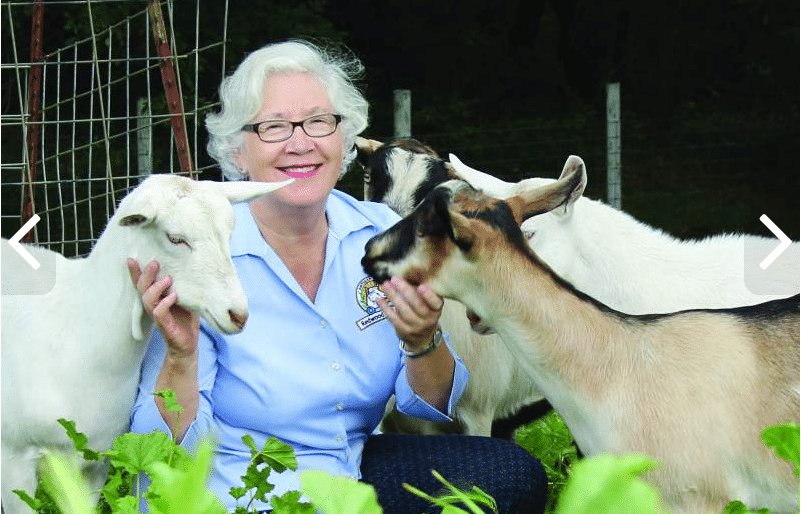by Jane Bender, The Climate Center
Jane Bender is president of The Climate Center. Powering the Bottom Line (nbbj.news/powering) is a recurring column from that Santa Rosa-based organization.
In 1978, Jennifer Bice took over her parents’ small goat dairy. Today, her award-winning goat milk yogurt, kefir and artisan cheese are sold nationwide, and she has expanded her offerings with a line of organic, lactose-free cow milk products.
Growth has been consistently double-digit: 25 percent in the earlier years and now closer to 12 percent–14 percent. She has built this successful enterprise with no investors and, until 2005, no bank loans.
From the beginning, Jennifer has steadfastly maintained the highest standards of sustainability. As she says, “It’s not just smart business. It’s who we are.” And who they are today is a company of more than 70 employees, working proof that profits and sustainability can go hand in hand.
SUSTAINABILITY TAKES MANY FORMS
Jennifer treats her animals and employees with the same respect she shows the environment. They are all dimensions of Redwood Hill’s sustainability program, deserving of the highest consideration and care.
Her farm and the creamery are showcases of resource preservation and renewable energy. Along with extensive recycling, insulation, LED and sensor lighting, and electric charging stations, the creamery runs primarily on renewable energy generated by two acres of solar panels. The farm runs on 100 percent solar energy as well.
The company reclaims its wastewater and pumps it to neighboring lands for irrigation. In addition, Jennifer is currently implementing a 100,000-gallon rainwater catchment system at the farm. That system will enhance the salmon habitat in nearby Green Valley Creek as well.
Redwood Hill Farm is also growing a drought-resilient goat feed called Tagasate that allows the farm to reduce its trucked-in feed, which in turn reduces its carbon footprint as well as saving dollars on feed.
“Sustainable milk production starts with good animal care, which is foundational to our business,” she explains. As a result of that commitment, Redwood Hill Farm was the first goat dairy in the U.S. to become Certified Humane, a standard that focuses on animal health, freedom of movement and nutritious diet.
The company also ensures that all other goat dairies that supply them milk are Certified Humane as well. And when Jennifer added lactose-free cow milk to her line of products, she made sure the cow dairies were Certified Humane and certified organic.
When talking about sustainability, Jennifer is adamant that it includes her employees and the larger community.
“We invest in our people,” she said. “Our employees all start at a living wage and we pay full health benefits for their whole family.”
Employees are encouraged to get involved in the greater community, and, to that end, can receive up to six hours paid time each month for volunteering. And for over 30 years the company has supported youth and agricultural organizations, local health needs and environmental causes.
WHAT LIES AHEAD
After almost 40 years at the helm, Jennifer has been looking to retire and, as she says, “just play with the goats.” And, in keeping with her dedication to excellence, she looked long and hard before she arrived at the right solution for her customers, her animals, her employees and the planet.
In December of 2015, she sold the creamery to Emmi, a Swiss dairy company with like values and vision, which is majority-owned by a cooperative of small dairy farmers. Jennifer still runs day-to-day operations at the creamery, and has retained ownership of her farm, which is managed by her brother Scott. In addition to its 350 goats, the farm has diversified into olive oils, bee hives, chickens, hops and apples.
